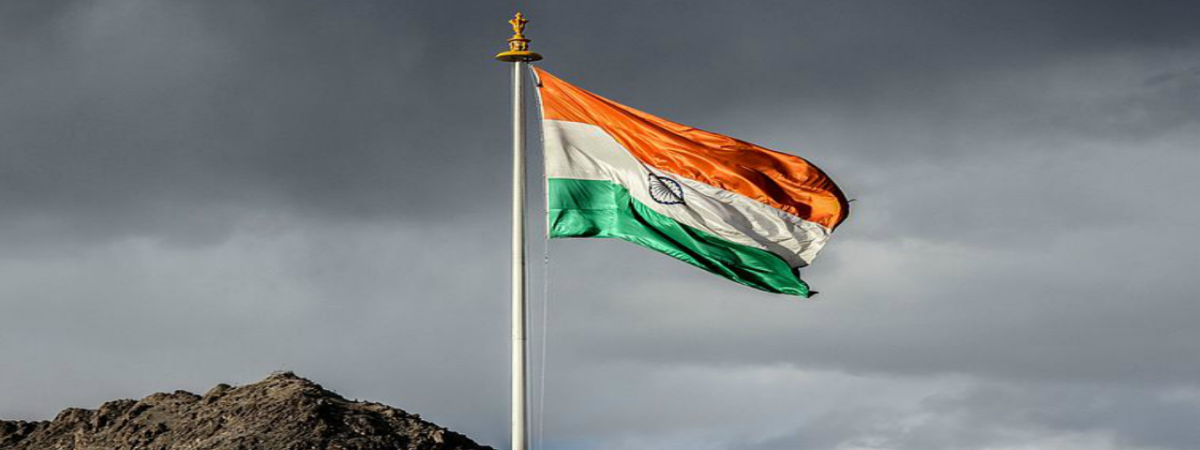An Introduction to An Introduction to Democracy
SUGGESTED



But then, democracy is difficult to understand. It no longer means lawmaking by the citizens, as it did in ancient Athens: today, ‘democracy’ means government by elected representatives. Nor does it mean rule by majority: democracy does not allow the majority to do whatever it likes to minorities, including persecution and theft. There are higher values, like life and liberty, that democracy exists to serve. Not even an overwhelming democratic majority can legitimately violate those values.
Such misunderstandings are why I wrote An Introduction to Democracy. I wanted to explain to people who live in countries that do not have democracy exactly what it is, how it works, and what benefits it can bring. And I wanted to remind those of us who do live in democracies that democracy only works its magic if it is kept within its proper limits.
In the book I talk about these issues, and trace this history of democracy from Greece, through Rome, to the constitutional republics we have today. I explain the purpose of government — to protect our rights and freedoms — and the role of democracy in that. I look at what is essential to democracy, what gives it a boost, and what benefits it confers. But I also review the criticisms that are made of it — such as voters being ill-informed, its short-term focus and government’s sprawling growth. I look at the messy reality of how democratic (that is, political) decisions are made and review the arguments for and against greater participation, such as compulsory voting, before imagining what a truly sustainable democracy would look like.
Democracy is part of a free society. It helps protect us from arbitrary laws made by the whim of dictators. It gives the whole public a role in the development of collective decisions and does so on the basis of political equality. The process of democracy demands the liberal values of tolerance and free speech. It helps minimise coercion and promotes peaceful change. It is based on the rule of law — the law applies equally to everyone — and respect for private property and individual freedom.
These are all reasons why the spread of democracy has helped societies become better governed, more open, and more peaceful. Individual rights are better protected in liberal democracies than they are in any other system. That may be because of competition: if people are free to criticise their government and leave the country if they do not like their government’s action, there is a strong pressure on legislators to get things right.
The biggest threat to democracy is not that it is replaced by armed dictators, nor even that it loses its spark and slowly fades away. Rather, the biggest threat is that democracy gets too big for its boots.
The trouble is that we are all told — and we have come to believe — that democracy is a really great system. Well, liberal democracy is a good system, compared with most others. And democracy is a reasonable way of deciding collective choices. But most choices are not collective, and individual decision-making is far, far better than collective decision-making. It is very much quicker. It is not driven by power politics. It makes people bear the consequences of their own actions. It does not allow the costs of majority decisions to be shunted on to other people. And nobody has to be coerced into accepting someone else’s choices.
Politicians in particular have convinced themselves that democracy is wonderful and should be applied to all sorts of decisions that are properly for the individual. How we teach our children, for example, or what doctors we can consult. What we can buy and sell, what we should eat and drink — even the size of our fizzy drink bottles. This democracy mission creep has left politics dictating every part of our lives. And still collectivists are calling for yet more to be politicised too.
To work, democracy has to be limited in both its scope and its authority. It must be focused on the few issues that cannot be decided in better ways. And it must be curbed in terms of the power it exerts over individuals such that our basic liberal rights and freedoms remain respected and cannot be overridden by whichever political faction happens to be the biggest.
We need democracy, but don’t let’s get dewy-eyed about it.
2 thoughts on “An Introduction to An Introduction to Democracy”
Comments are closed.




Thank you for this clear introduction to a subject which is fundamental and complex yet too little discussed. As with countries with green in their flags, don’t invest in countries with Democratic in their names.
As explained from first principles here: https://gezwinstanley.wordpress.com/questions-and-some-answers-how-to-live-with-yourself-and-others/ no one is an island, as everyone’s actions effect everyone else, it’s only the collective that can decide the limits of individual autonomy (see especially the section on “Autonomy”). A democratic consensus has to be the very foundation of libertarianism. (But consensus forms of democracy are indeed to be preferred to pure majoritarian democracy, that’s one of the reasons, for example, that proportional or preferential voting systems tend to be superior to first passed the post, and why mechanisms should be adopted to try and protect the interests of minorities).